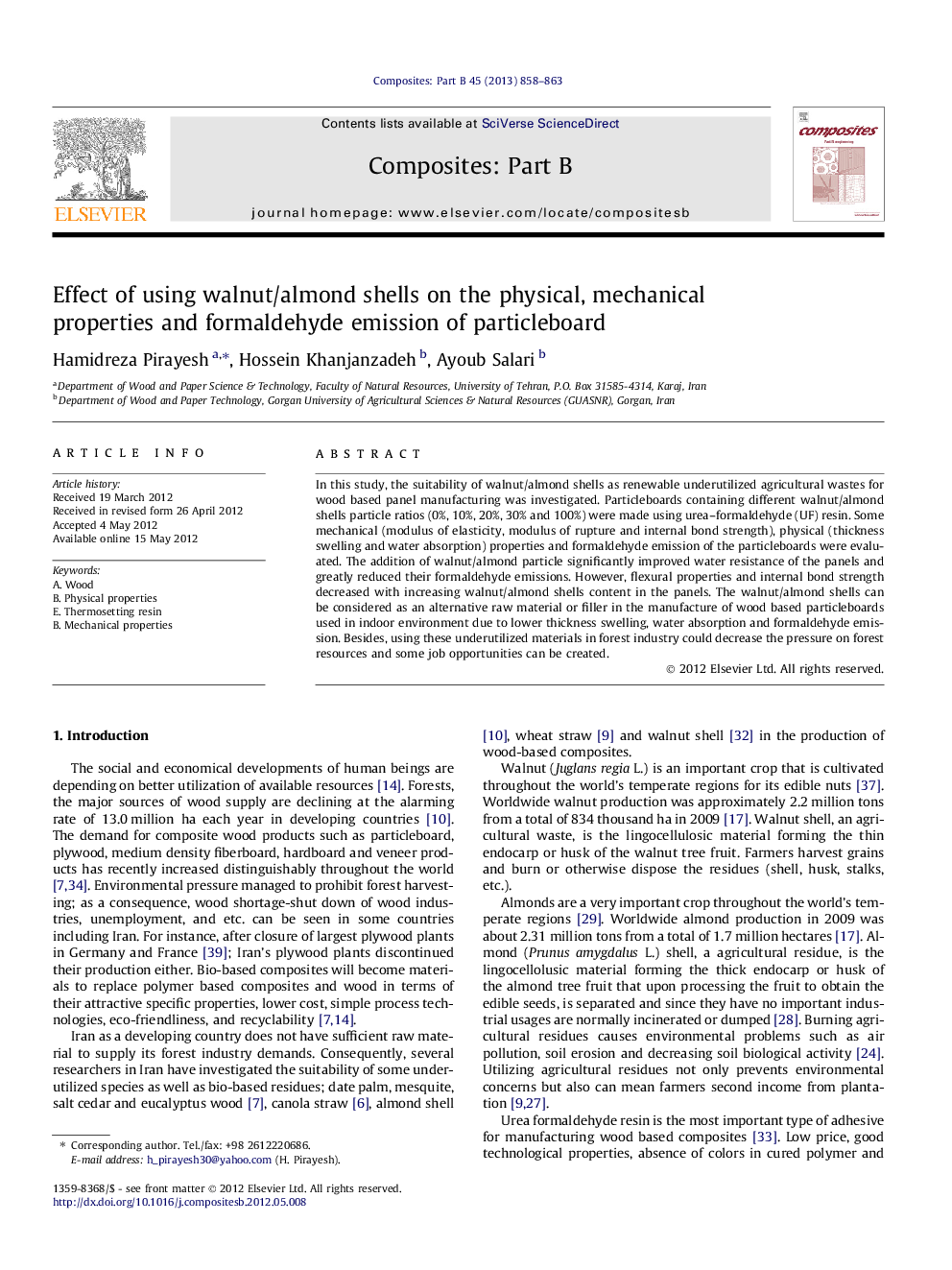| Article ID | Journal | Published Year | Pages | File Type |
|---|---|---|---|---|
| 818955 | Composites Part B: Engineering | 2013 | 6 Pages |
In this study, the suitability of walnut/almond shells as renewable underutilized agricultural wastes for wood based panel manufacturing was investigated. Particleboards containing different walnut/almond shells particle ratios (0%, 10%, 20%, 30% and 100%) were made using urea–formaldehyde (UF) resin. Some mechanical (modulus of elasticity, modulus of rupture and internal bond strength), physical (thickness swelling and water absorption) properties and formaldehyde emission of the particleboards were evaluated. The addition of walnut/almond particle significantly improved water resistance of the panels and greatly reduced their formaldehyde emissions. However, flexural properties and internal bond strength decreased with increasing walnut/almond shells content in the panels. The walnut/almond shells can be considered as an alternative raw material or filler in the manufacture of wood based particleboards used in indoor environment due to lower thickness swelling, water absorption and formaldehyde emission. Besides, using these underutilized materials in forest industry could decrease the pressure on forest resources and some job opportunities can be created.
